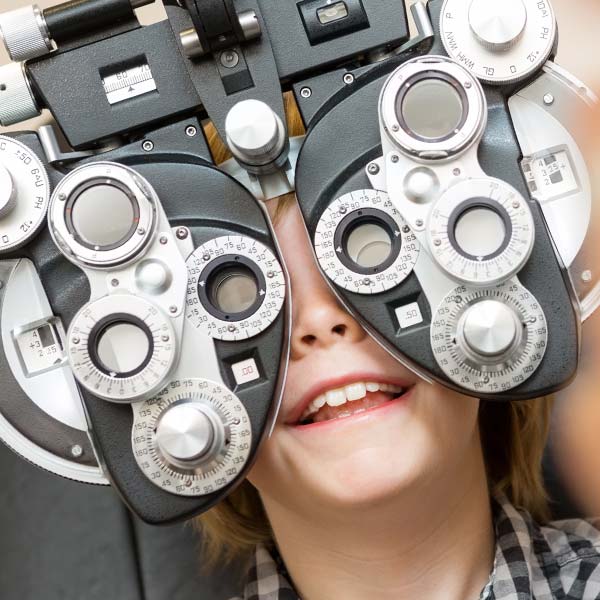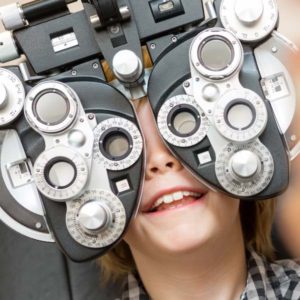As we journey through life, our bodies undergo a multitude of changes, and our eyes are no exception. Understanding the natural evolution of vision is crucial for maintaining eye health and adapting to the visual needs of different life stages. We’ll explore age-related vision changes to expect as you get older, this blog focusing on your 40s, 50s, and beyond.

The 40’s: Presbyopia and the Art of Varifocals
Entering your 40’s often brings the onset of presbyopia. This condition involves the eye’s lens losing flexibility, making it challenging to focus on close objects. Reading small print or using digital devices may become more difficult. Embrace the beauty of multifocal lenses, which provide a transition between prescriptions for near and distance vision. The two main types of multifocal lenses are bifocals and progressive lenses. Bifocals have two distinct sections within the same lens. The upper part is designed for distance vision, while the lower part contains an added segment for close-up vision. Progressive lenses, also known as no-line bifocals or varifocals, offer a seamless progression of prescription strengths from the top of the lens to the bottom. Regular eye exams become even more essential during this stage to ensure your prescription stays up-to-date.
The 50’s: Embracing Change with Reading Glasses and More
As you progress into your 50’s, presbyopia continues to evolve. Many individuals find themselves owning and using reading glasses for up-close tasks. Moreover, issues like dry eyes might become more prevalent, requiring the use of lubricating eye drops. Annual eye exams are crucial for monitoring changes in prescription, detecting early signs of eye diseases, and addressing emerging issues promptly. Sadly for you. eye examinations may become a little more frequent as your eye prescription changes.
The 60’s and Beyond: Cataracts, Glaucoma, and Macular Degeneration
Moving into your 60’s and beyond, the risk of developing certain eye conditions increases. Cataracts, characterised by the clouding of the eye’s lens, may necessitate surgery to restore clear vision. Glaucoma, a condition affecting the optic nerve, can lead to gradual vision loss if not managed. Macular degeneration, impacting the central part of the retina, can affect detailed vision. Regular eye check-ups are vital for early detection and intervention.

Tips for Healthy Aging Eyes
Although your eye’s sight will sadly worsen with time, there are plenty of ways to maintain the health of your eyes as you get older.
- Regular Eye Exams: Schedule comprehensive eye exams at least once a year, even if you don’t experience noticeable changes in vision. Early detection allows for proactive management of potential issues.
- Adapt Your Environment: Invest in proper lighting for reading and other close tasks. Reduce glare from screens and optimise your workspace to minimise eye strain.
- Protect Your Eyes from UV Rays: Sunglasses aren’t just a fashion statement—they’re essential for shielding your eyes from harmful UV rays. Choose sunglasses that block both UVA and UVB rays.
- Maintain a Healthy Lifestyle: Regular exercise, a balanced diet rich in nutrients like omega-3 fatty acids and vitamins A, C, and E, and staying hydrated contribute to overall eye health.
- Quit Smoking: Smoking is linked to an increased risk of developing cataracts, macular degeneration, and other eye conditions. Quitting smoking can positively impact your eye health.
- Stay Hydrated: Proper hydration is crucial for maintaining the health of your eyes and preventing dry eye symptoms. Drink an adequate amount of water daily.
Aging is a natural part of life, and so are the changes that accompany it. Embracing these changes with a proactive approach to eye care ensures that you can continue to see the world clearly and enjoy life’s visual richness. By staying on top of your eye health, adapting your habits, and seeking professional guidance, you can foster healthy vision well into your golden years. Remember, your eyes are your windows to the world—let’s keep them clear and vibrant for a lifetime of sightseeing.
Get in Touch
If you would like to find out more, or you wish to book an eye test, get in touch. Give us a call today at 0800 980 34 64 or email us at info@focusmedicaleyecentre.co.uk.

 The eyesight of your children is very important. You should be thinking of first checking your child’s eyesight and having their
The eyesight of your children is very important. You should be thinking of first checking your child’s eyesight and having their 